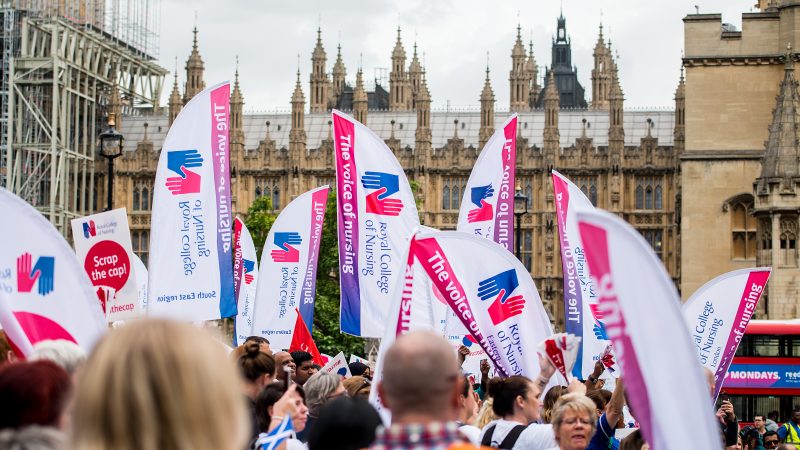
Monday night was a late one for MPs, as they debated and voted on the government’s minimum service levels bill. Deputy Labour leader Angela Rayner denounced the legislation as a “vindictive assault on the basic freedoms of British working people”, declaring that, in her seven years in parliament, she could not recall a measure that is “at once so irrational and so insulting”. Business Secretary Grant Shapps claimed that the bill is a “common sense safety net to keep the public safe” and accused MPs who voted against it of being “prepared to put the safety and welfare of their own constituents at risk”. The bill eventually passed its second reading by 309 votes to 249 and will now progress to committee stage, where MPs will be given the opportunity to scrutinise key details of the legislation.
The backdrop to the vote was a flurry of announcements by unions about strike action. Grabbing the headlines was the National Education Union (NEU), who confirmed yesterday evening that teachers in England and Wales had voted overwhelmingly to go on strike. The NEU revealed that more than 90% of teachers in England had voted for industrial action on a turnout of 53%, while 92% of teachers in Wales had backed strikes on a turnout of 58%. The union said the ballot result in England is the “biggest ballot result of any union in recent times”. Support staff in Wales also voted to go on strike, though their colleagues in England missed the legal threshold for action. A ballot of National Association of Head Teachers (NAHT) members in England also failed to reach the threshold, though members in Wales did vote to strike.
The NEU announced plans for seven days of strikes in February and March, in a mixture of national and regional action, which it said will see any individual school only affected on four days. The strikes will kick off with a national walkout on February 1st, coinciding with the TUC’s national ‘protect the right to strike’ day – which will see a series of protests across the country against the government’s minimum service levels bill – and with industrial action by members of the Public and Commercial Services union (PCS). Announcing the strikes, joint NEU general secretaries Mary Bousted and Kevin Courtney declared that “anyone who values education should support us in this dispute because that is what we are standing up for”.
Hot on the heels of the teaching unions, the Royal College of Nursing (RCN) confirmed last night that its members in England and Wales will go on strike on February 6th and 7th if progress isn’t made in negotiations by the end of January. The union said the further strikes would be its “most widespread protest so far against unfair pay and unsafe staffing”. The proposed walkouts would take place in 73 NHS trusts in England, compared to 44 during December’s strikes and 55 during strikes scheduled for Wednesday and Thursday this week. General secretary Pat Cullen said: “We are doing this in a desperate bid to get ministers to rescue the NHS. The only credible solution is to address the tens of thousands of unfilled jobs – patient care is suffering like never before.”
Sign up to LabourList’s morning email for everything Labour, every weekday morning.



More from LabourList
Nudification apps facilitate digital sexual assault – and they should be banned
Diane Abbott suspended from Labour after defending racism comments
Labour campaign groups join forces to call for reinstatement of MPs